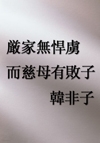|
Support of translation into English:
When you write the inquiry or the answer, this site can support the use of the charge-free translation site where a certain mother language is translated into English, though the Environmental Plazas are English.
Forerunner cordiality
|
A supporting message for international students: Mr. Md. Moin: ( PIKT Corporation) I interviewed Mr. Md. Moin. He entered Ritsumeikan Asia Pacific University (APU) from Bangladesh and joined a manufacturer in Nagoya after graduation. And then he changed jobs to a German company in Tokyo. While going to the MBA course of the University of Tsukuba, he founded a social company PIKT Corporation, whose basic concept is "Intellectual fair trade". At the present time, Mr. Moin is going back and forth busily as a consultant between Japan and Bangladesh to solve the problems of Japanese companies which will expand their business in Bangladesh. I interviewed Mr. Md. Moin. He entered Ritsumeikan Asia Pacific University (APU) from Bangladesh and joined a manufacturer in Nagoya after graduation. And then he changed jobs to a German company in Tokyo. While going to the MBA course of the University of Tsukuba, he founded a social company PIKT Corporation, whose basic concept is "Intellectual fair trade". At the present time, Mr. Moin is going back and forth busily as a consultant between Japan and Bangladesh to solve the problems of Japanese companies which will expand their business in Bangladesh. "I (Md Moin) was born in Chittagong, Bangladesh. After entering Dhaka University, I transferred to Ritsumeikan Asia Pacific University (APU) at the age of 22. Friends around me went to Europe and US for studying. I, however, chose to go to Japan because it is one of the major economic countries in the world. My father, who has experience to visit Japan, told me that Japanese are gentle and kind. After graduating from the university in March 2005, I joined a big Japanese manufacturing company in Nagoya. Two years later, I left the company, and joined Bosch Corporation, a German company in Tokyo because I really wanted to get MBA. Bosch Corporation had a nice circumstance for studying. My boss was German and had a good understanding of the workplace. Also, the company adopted flextime. So I adjusted my working hours and began taking the MBA course of the University of Tsukuba (Otsuka campus) in 2009. I attended four times a week, from 18:00 to 22:30 on weekdays, besides all day on weekends. In 2010, while I was in Bosch Corporation, I founded a social company PIKT Corporation with my Filipino classmate. The basic concept of the company is "Intellectual fair trade" and its purpose is "the economic independence" of Filipino and "the language independence" of Japanese. Since I still belonged to Bosch Corporation, they gave me 30 hours of free time a month and I declined the salary of that time. After that, I left Bosch Corporation in December 2012 to focus on our business of "Online English Conversation using Skype". On the other hand, my home country Bangladesh is taken up by the media in the last few years. Bangladesh has achieved a rapid economic growth as one of NEXT11, second only to BRICs. In addition, it is still a young country whose average age is 22. And with a population of 160 million, which is larger than that of Japan, Bangladesh is full of business opportunities. Many companies plan to expand their business in Bangladesh because it is attractive as a production base and a market for Japanese companies. However, the infrastructure improvement is not keeping up with its growth, the legal system is different, and it is hard to interact with people and authorities. This is why many companies are struggling. The country also has fundamental issues such as "Is it safe?" and "Who can we rely on?" Although many of Bangladesh people feel strong affinity toward Japan, local authorities and governments don't always welcome Japanese companies. So it is hard to find reliable people of the top level and make them agree by getting their true opinions. Even opening an office is difficult. One major company has their branch office in a luxury hotel in the capital city. ―――What kind of solution did you provide to the companies expanding their business in Bangladesh, Mr. Moin? PIKT has made a contract with JETRO to do a consulting business in the case of specific matters from companies. In response to a commission, PIKT will negotiate with many constitutions, propose to Japanese companies, and guarantee their businesses. I go back and forth busily between Japan and Bangladesh every month. ―――I'd like to ask you, Mr. Moin, because you have experiences of working for some companies. Do Japanese discriminate foreign people in companies? (Are Japanese kind people or strict people?) Finally, I earnestly requested him to write some words for international students on a colored paper. He thought for a long time about what words to give them, and wrote "Mastering Japanese is the most important." He thought that knowing Japanese culture and mastering Japanese language would work closely together. He studied at APU that is advocating education in both Japanese and English. After that, Mr. Moin had experiences doing various discussions in the University of Tsukuba MBA course, which made him competent with two language abilities. That's why he wrote Japanese is important, which was somewhat surprising to me. But I think that it would be precious advice for international students. It came from the experience of Mr. Moin, who keeps challenging.
A Brief to Mr. Md Moin http://vision-asia-consulting.com/about/#ceomsg |


